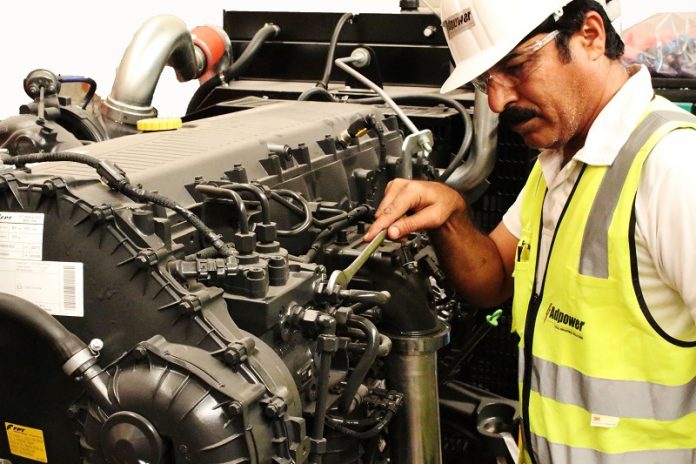
Diesel generator sets – used for either prime or backup (emergency) power – must be regularly maintained to ensure they provide quality power throughout their service life. Larger companies who own many generators, or those who rely on gensets extensively for prime power, may require an in-house engineer to maintain their gensets. Smaller companies, or users who own a generator to provide backup power in the event of an outage, may establish maintenance contracts with generator dealers and/or electrical contractors to maintain their gensets. In either instance, the life-cycle of power generators is well established and documented making routine maintenance fairly straight-forward. Best generator maintenance practice is following the maintenance schedule provided by the manufacturer of the generator.
The long outstanding use of generators over time has provided the necessary knowledge to predict when certain components will fail or be in need of service. A fairly reliable maintenance schedule can usually be acquired from the manufacturer and can be employed by a local generator dealer or other electrical contractors/engineers with experience in power generation. Adhering to this schedule will ensure maximum service time for the generator and proper operation when it is called upon to provide power. Large generator manufacturers have established maintenance plans and will not only service their own generators, but many of the other industries major brand names as well.
The main responsibilities of the maintenance contractors would be to inspect systems, study the technical data provided by the manufacturers, maintain records and take precautionary measures for safety as suggested by the manufacturers.
Some of the steps taken to ensure smooth generator operation while carrying out scheduled maintenance include:
• Timely removal of worn out parts or upgrading the components
• Checking fluid levels
• Battery inspection and cleaning of connections
• Load bank testing
• Verifying control panel readings and indicators
• Changing fuel and air filters
Small investments made in replacing components and maintaining generators on a regular basis can save expensive and unnecessary upgrades or even replacement of the entire genset in the future.
When performing routine maintenance, each action taken should be logged, and the readings and various parameters are recorded along with the date of inspection and hour meter reading of the generator. These set of readings are compared with the next set of data collected. Any absurd variation of readings indicates faulty performance of the unit.
Load testing of automatic transfer switches in regular intervals keeps track of the component’s electrical and mechanical integrity in the actual mechanical transfer operation. Other factors to be checked periodically are starting and timing relays, start signal continuity, and utility phase sensing.
Preventative maintenance thus ensures that you get uninterrupted power supply for all your needs. You are assured of service on priority basis in case of dire emergency and discounted service rate for additional support or work. Once a business enters into such contracts, the facility can relax on this aspect as the maintenance provider keeps track of when the next servicing is due and makes the visits in regular intervals. They ensure that the products purchased through them receive consistent and reliable service.
